NOTE: Updated with 2022 Nobel Prize Winner Carolyn R. Bertozzi.
If you’re looking to inspire a STEM Growth Mindset in your students, consider studying the story of the Nobel Prize – and the women Nobel Science Prize winners.
A set of 24 Women Nobel Science Prize Winners Inspiring Quotes Coloring Posters is available at the STEM-Inspirations Etsy shop.
Their energy, determination, and creativity in the face of many hardships and setbacks led to discoveries that have conferred great benefits to mankind. Their words of advice will inspire every student towards a positive mindset and greater achievement.
For example, Maria Goeppert Mayer was the second woman to win a Nobel Prize in Physics after Marie Curie. Goeppert Mayer discovered the nuclear shell structure, which made possible advances in nuclear energy, nuclear medicine, nuclear power, and materials science.
Like other women who have won a Nobel Prize in one of the sciences, Maria Goeppert Mayer persevered to break through the barrier of sexism and anti-nepotism in the mid-1900s. During a period of massive unemployment, women were not allowed to work if they had a husband with a job. Yet, she loved physics so much that she volunteered her time, or took part-time jobs for little pay, in order to pursue her career.
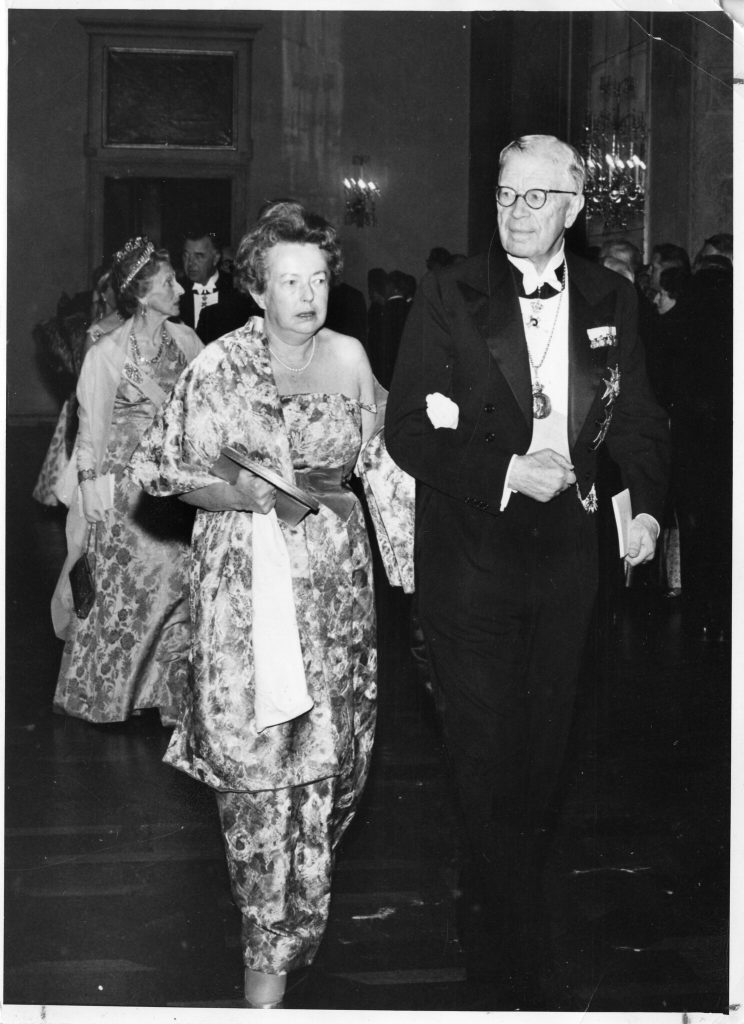
Maria Goeppert Mayer, winner of the Nobel Prize in Physics for 1963, is escorted to the gala banquet on the arm of King Gustaf VI Adolf of Sweden. Goeppert Mayer won for her model of the nuclear shell structure of atoms. She shared the prize with two other scientists who also studied the nature of atomic particles. Photo: Smithsonian Institution Archives
Goeppert Mayer’s life story will inspire anyone towards a growth mindset and greater achievement.
What are the Nobel Prizes?
The Nobel Prizes were created by the 19th century Swedish businessman, scientist and inventor Alfred Nobel who left most of his huge fortune to honor those each year who “have conferred the greatest benefit to humankind.”
Alfred Nobel became rich from his factories and inventions. He invented dynamite in 1867, and his invention quickly became an important tool for blasting out roads, tunnels, and canals.
After this breakthrough, Nobel continued to experiment with new types of controlled explosives for mining and drilling oil wells. He also followed in his father’s footsteps, building many factories that made explosive weapons used in war.
Nobel the Pacifist
But Alfred Nobel was a pacifist and did not want to be remembered for unleashing such destructive forces used for war. To compensate for this, he willed most of his fortune to establish five international monetary prizes.
Each Nobel Prize winner receives a gold medallion featuring the portrait of Alfred Nobel. Credit: Tricia Cute Design
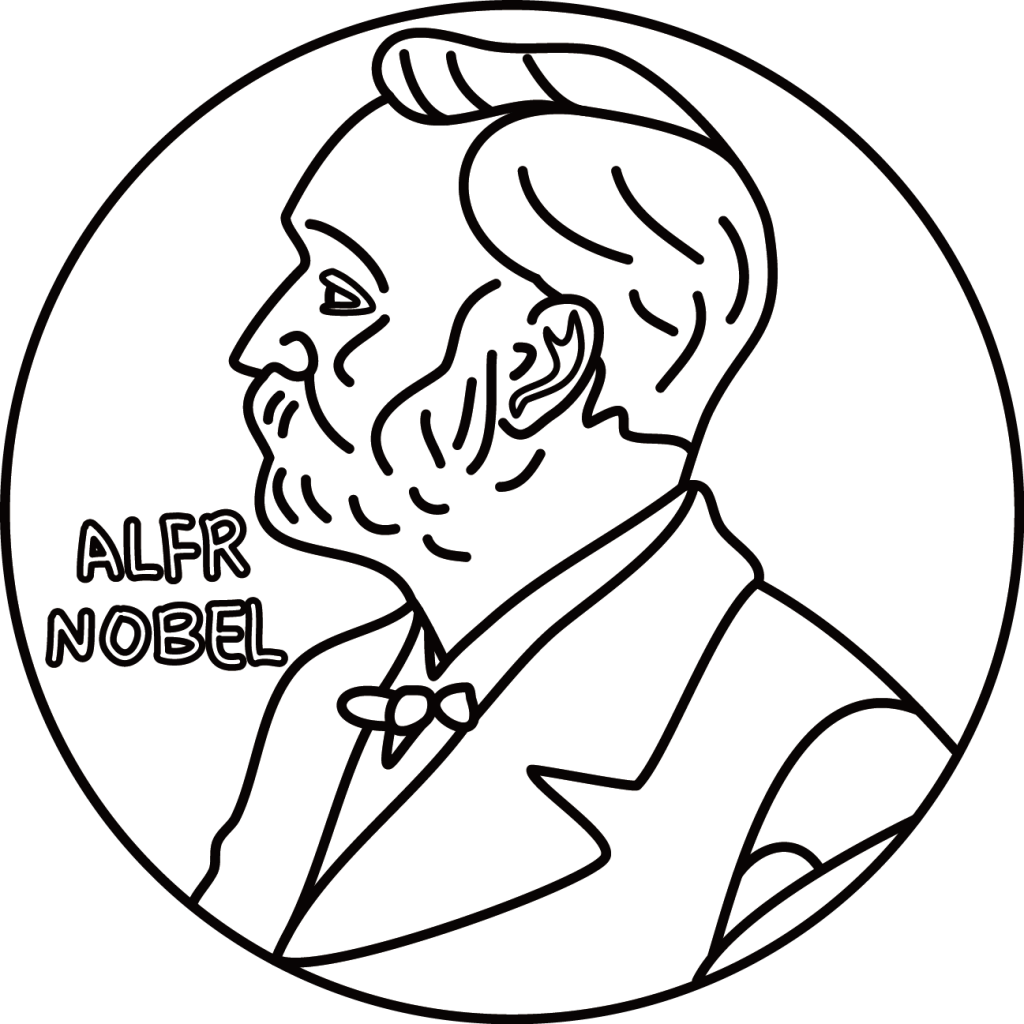
Nobel himself designated three of the prizes in areas of science: Physics, Chemistry, and Physiology or Medicine (which today includes biochemistry).
He also set up prizes in Peace and Literature. Later, the central bank of Sweden set up a Memorial Prize in Economic Sciences in memory of Alfred Nobel.
Although Nobel was Swedish and the Nobel Prizes are managed by Trusts in that country, the Prizes are open to people of all races, genders, and nationalities.
What do they win?
The first Nobel Prizes were awarded in 1901. Some winners – called Nobel laureates – share the prize with one or two other scientists, while some are the sole winners for that year.
The prizes come with a gold medallion featuring a portrait of Nobel, a special diploma, and hundreds of thousands, or even millions of dollars. Most laureates donate the prize money to charity or use it to carry on their world-changing research.
The first full week of December is considered “Nobel Prize Week.” During these seven days, the current year’s Nobel Prize winners receive their awards, give talks about their work, and attend banquets and cultural celebrations to honor their achievements.
Some of the most famous scientists of the past to win a Nobel Prize include:
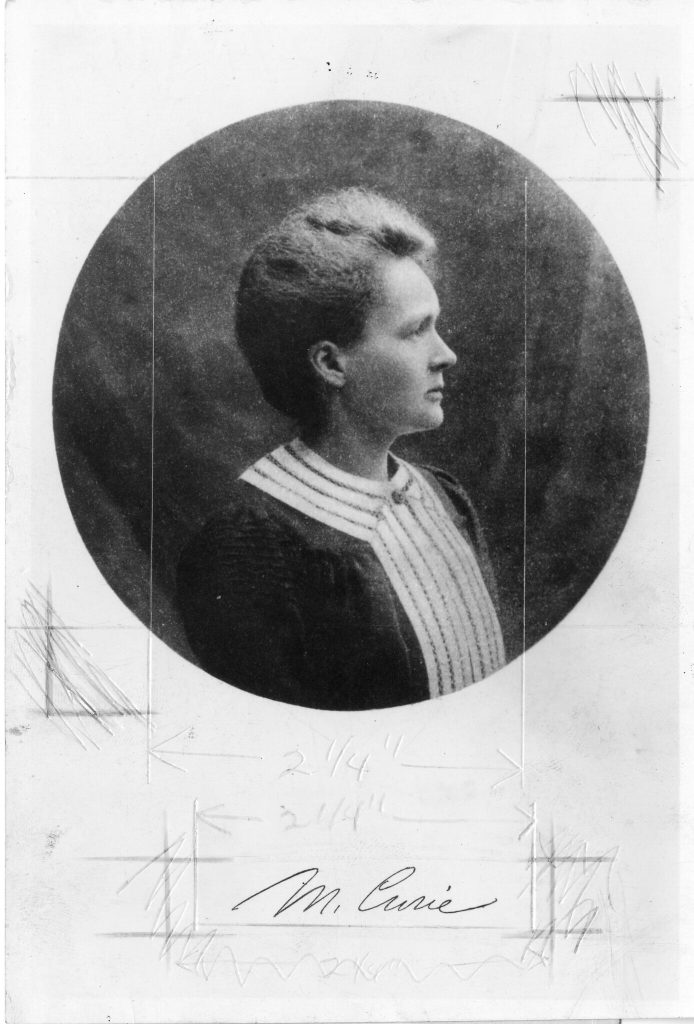
Marie Curie is the only person, male or female, to win a Nobel Prize in two different science categories. Photo: Smithsonian Institution Archives
Marie Curie shared the 1903 Nobel Prize in Physics with her husband Pierre Curie and Henri Becquerel, for their research on radioactivity. After Pierre died in a tragic accident, Marie won the 1911 Nobel Prize in Chemistry for discovering the radioactive elements radium and polonium, making her the only person, male or female, to win a Nobel Prize in two different science categories.
Albert Einstein received the 1921 Nobel Physics prize for “services to theoretical physics, and especially for his discovery of the law of the photoelectric effect.” However, he never received the award for his theories of relativity and gravitation, which were considered by some to be unproven at the time.
Irène Joliot-Curie, Marie and Pierre Curie’s daughter, shared the 1935 Nobel Prize in Chemistry with her husband, Frédéric Joliot-Curie, for their discovery of a way to artificially create radioactive atoms, which can be used in medical treatments and scientific research.
Physicist Irène Joliot-Curie (1897-1956) was jointly awarded the 1935 Nobel Prize for Chemistry with her husband Frédéric Joliot (1900-1958) for the discovery of artificial radioactivity. Photo: Smithsonian Institution Archives
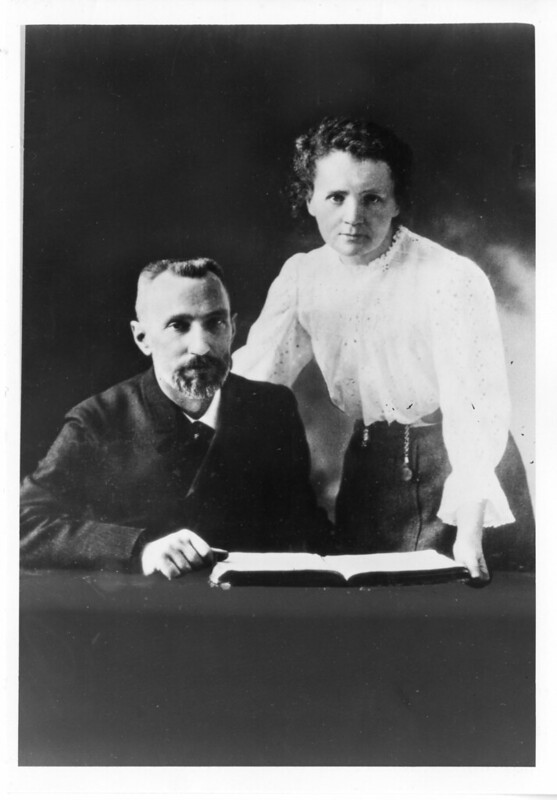
Sir Alexander Fleming, along with Ernst Chain, and Sir Howard Florey, won the 1945 Nobel Prize in Physiology or Medicine “for the discovery of penicillin and its curative effect in various infectious diseases.” The discovery was a happy accident. Fleming left his laboratory for a month-long vacation in August 1928 and when he returned, he found that penicillin fungus had invaded a stack of Petri dishes, killing off the infectious bacteria he was growing there.
Linus Pauling won the 1954 Nobel Prize in Chemistry “for his research into the nature of the chemical bond and its application to the elucidation of the structure of complex substances.” Pauling’s discovery of the genetic cause of sickle cell anemia was just one of many practical applications of his research. He also won the Nobel Peace Prize in 1963 for his vocal support for a worldwide ban on nuclear testing.
Francis Crick and James Watson, along with Maurice Wilkins, won the 1962 Nobel Prize in Physiology or Medicine for their discovery of the double helix shape of DNA, and the way it contributes to information transfer in living material.
Watson and Crick’s prize remains controversial because Rosalind Franklin, a chemist working under Wilkins, developed the first X-ray crystallography image of DNA clearly showing the double helix shape. Wilkins, who did not get along with Franklin, showed the image to Crick and Watson without her knowledge. Though Watson and Crick later admitted Franklin’s image was crucial to their understanding, her name was not credited in their published scientific paper, the one that was ultimately awarded the Nobel Prize.
2022 Nobel Science Prize Winners
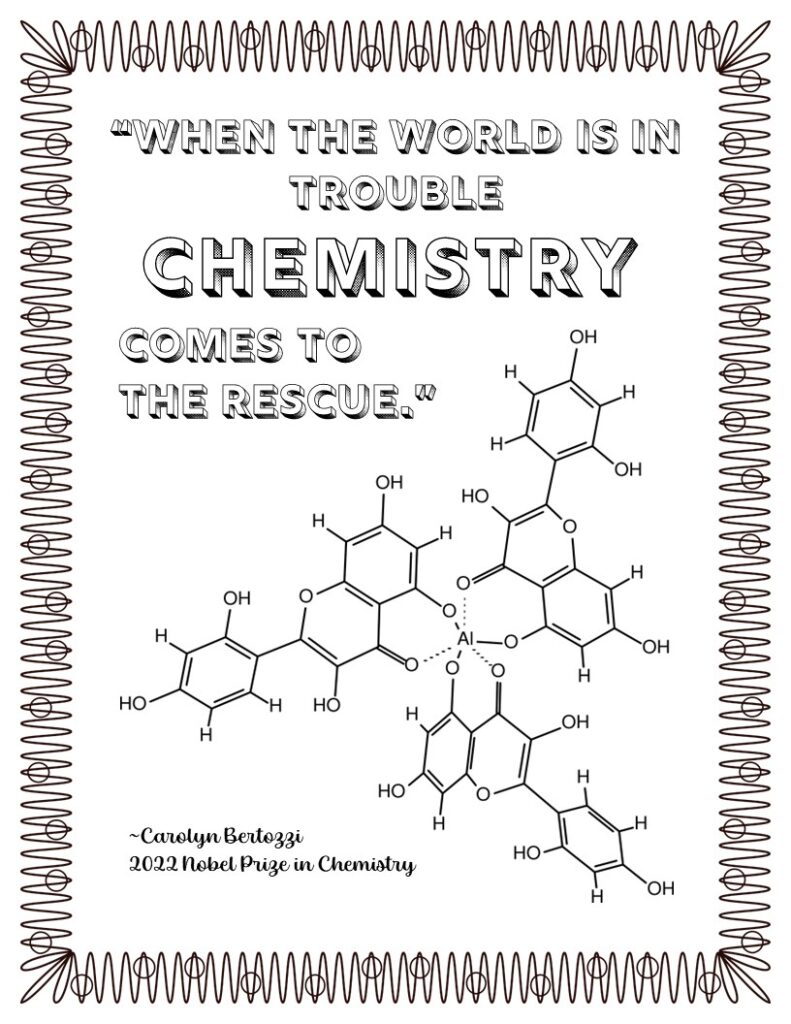
Most recently, Carolyn Bertozzi shared the 2022 Nobel Prize in Chemistry with Morten Meldal and K. Barry Sharpless for developing ‘click chemistry,’ a method for allowing molecular blocks to be snapped together to create complex molecules.
2020 Nobel Science Prize Winners
Harvey J. Alter, Michael Houghton, and Charles M. Rice, Physiology or Medicine laureates, “for the discovery of Hepatitis C virus.”
Emmanuelle Charpentier and Jennifer A. Doudna, Chemistry laureates, “for the development of a method for genome editing.”
Reinhard Genzel and Andrea Ghez Physics laureates, “for the discovery of a supermassive compact object at the center of our galaxy,” along with Roger Penrose, Physics laureate, “for the discovery that black hole formation is a robust prediction of the general theory of relativity.”
Women Nobel Prize Winners
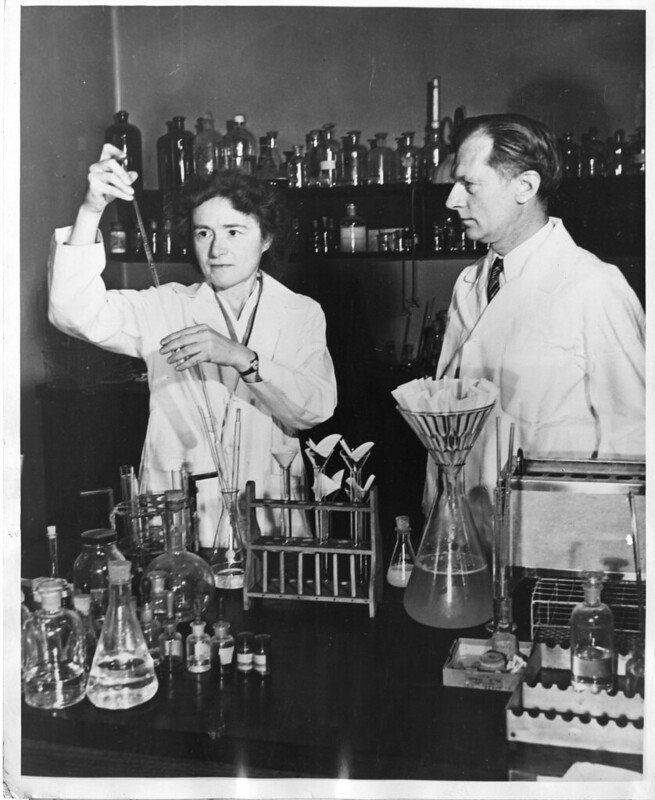
Biochemist Gerty Theresa Radnitz Cori (1896-1957) and her husband Carl Ferdinand Cori (1896-1984) were jointly awarded the Nobel Prize in medicine in 1947 for their work on how the human body metabolizes sugar. Photo: Smithsonian Institution Archives
Many women have won Nobel Prizes in Literature, Peace and Economics. But as of 2022, only a total of 24 Nobel science prizes have been awarded to women.
Four women have won Nobel Prizes in Physics, eight in Chemistry, and 12 in Physiology or Medicine.
2020 was a banner year for women. Andrea M. Ghez shared the Nobel Prize in Physics with Rheinhard Genzel and Roger Penrose, proving both experimentally and theoretically Einstein’s theory of relativity.
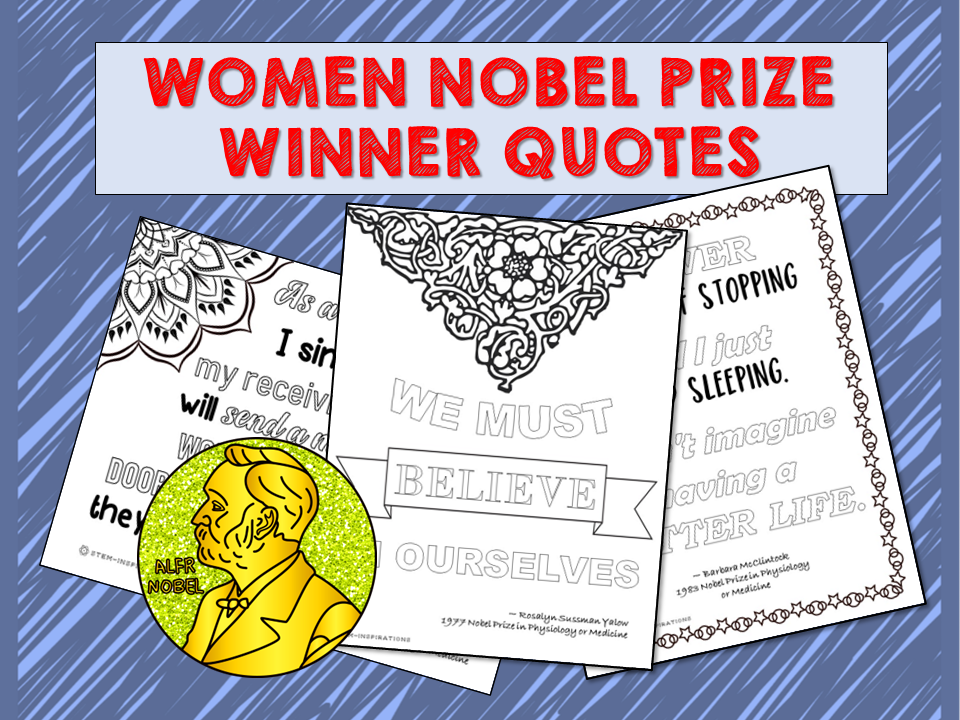
Inspire your STEM students with these downloadable quotes coloring pages by all the women who have won a Nobel Prize in Science!
Meanwhile Jennifer A. Doudna and Emmanuelle Charpentier together shared the Nobel Prize in Chemistry, for developing the CRISPR/Cas9 “genetic scissors.” Using this technology, researchers can cut out portions of the DNA of animals, plants and microorganisms with extremely high precision. CRISPR technology is already contributing to advances in agriculture and new cancer therapies.
Carolyn R. Bertozzi was the only woman to win a Nobel Science Prize in 2022. In an interview on the day of the prize announcement, Bertozzi was quoted as saying, “When the world is in trouble, chemistry comes to the rescue.”
What can we learn from the Nobel Prize winners?
Throughout the years, the Nobel Prize committees choosing the winners, as well as some of the winners themselves, have not always been perfect (and who is?).
For example, Einstein was denied the Nobel Prize for several years, partly due to the antisemitism that became prevalent in Europe. And as a woman, Marie Curie only received the 1903 Nobel Prize because her husband Pierre Curie insisted on it.
Yet overall, the winners have exemplified Alfred Nobel’s desire to recognize those who have contributed greatly to benefit humanity, often in the face of persecution, racism, or sexism.
Resources for teaching students about Nobel Prize winners in science:
Women Nobel Science Prize Winners Growth Mindset Coloring Pages
Science Literacy Series Women Nobel Science Prize Winners – Gerty Cori
Science Literacy Series Women Nobel Science Prize Winners: Maria Goeppert Mayer
Click here to sign up for the password to the STEM-Inspirations Free Resource Library for a free Andrea Ghez Nobel Prize Winner Inspirational Quote Coloring Page and many more STEM resources!
Copyright ©2020-2023 Holly B. Martin and STEM-Inspirations. All rights reserved.
